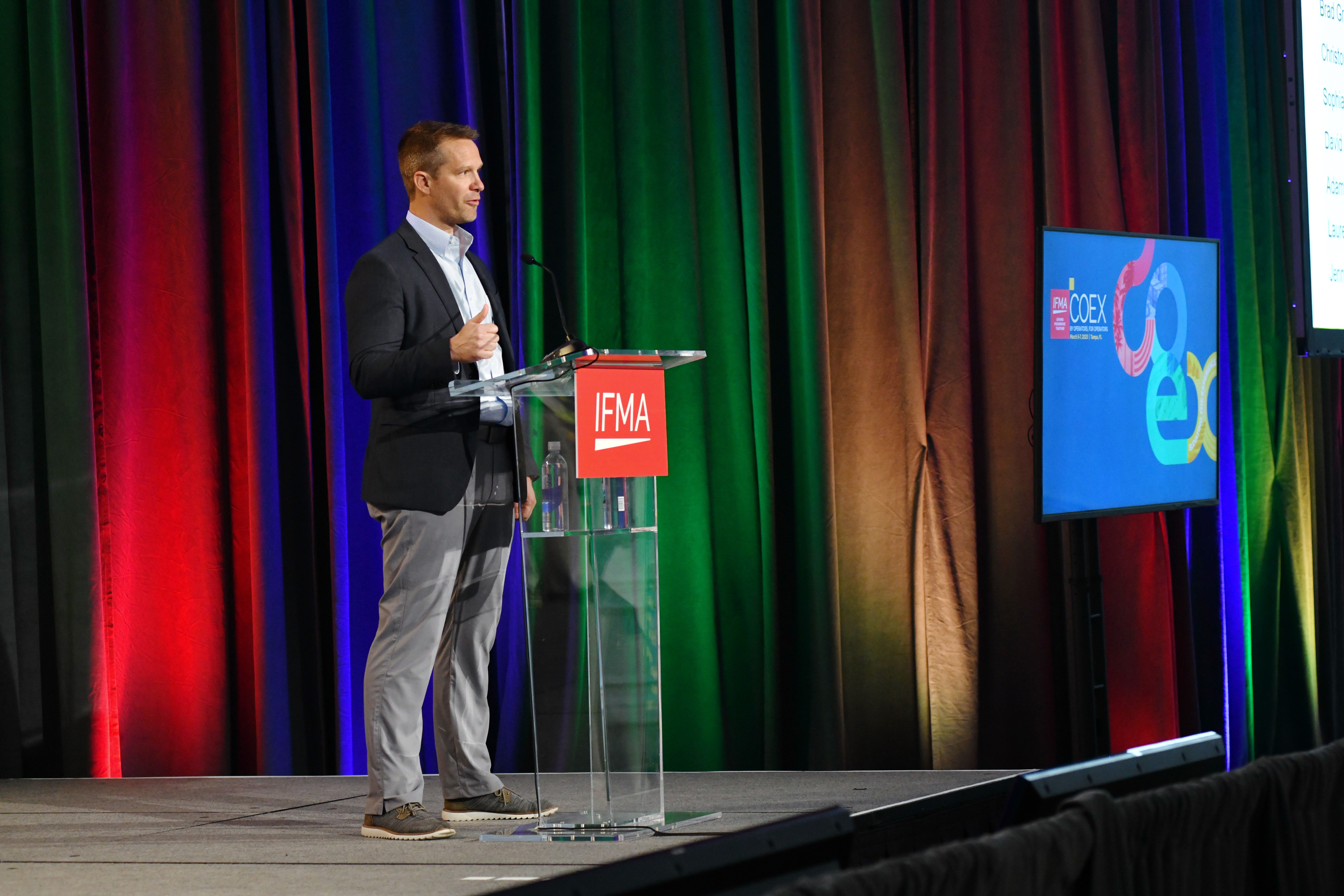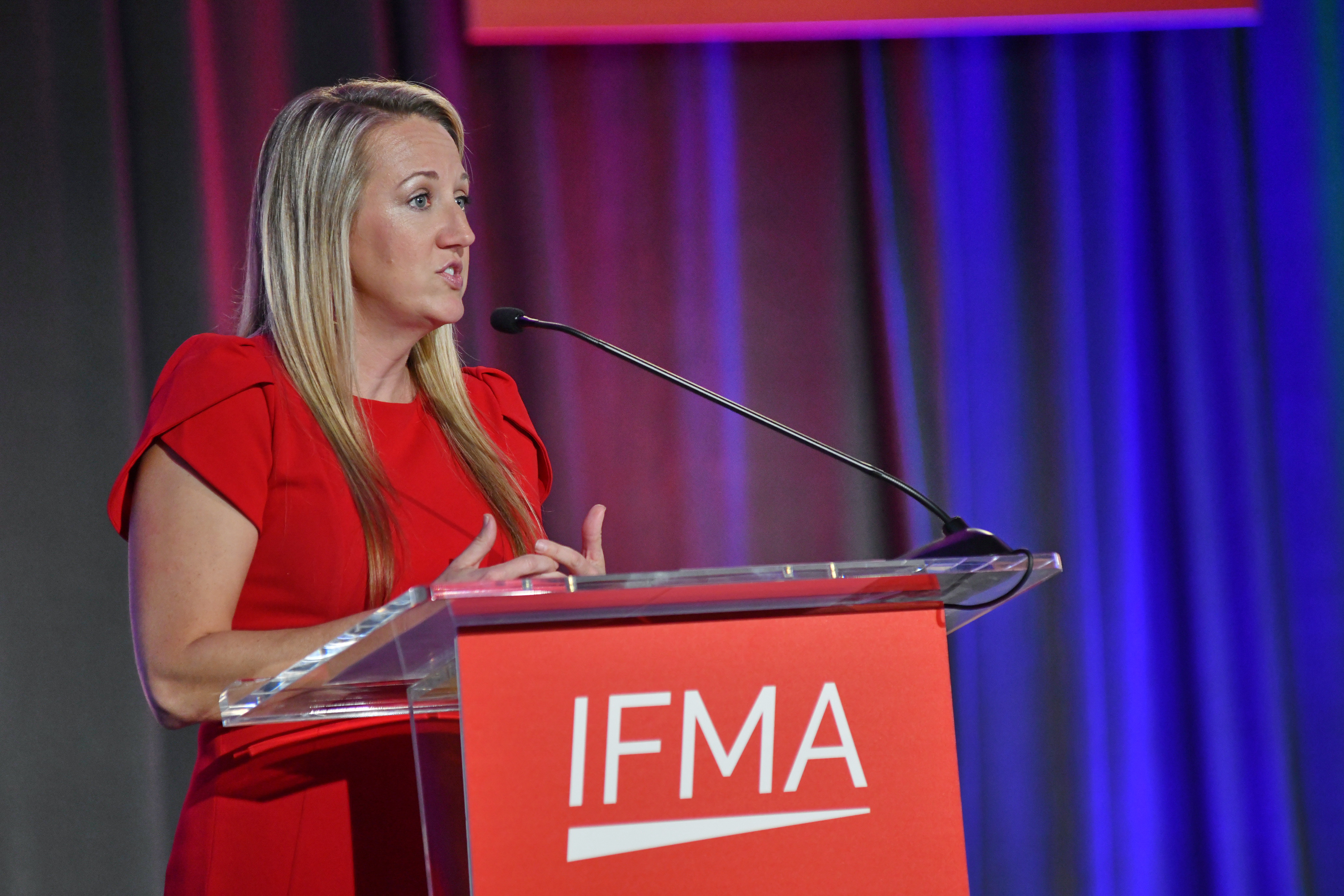This is the second in a two-part series, read the first part here.
During the March 2023 IFMA COEX event, conference attendees were asked what leadership looks like and there was a real consensus on the elements that make up a good leader.
Overall, leaders are:
- Good communicators...and listeners. Leaders excel at communicating the “why,” especially when making hard decisions.
- Transparent and authentic.
- Ready to lead by example. Leaders set the tone of an organization, they “know their stuff,” and are forward-thinking and inspirational. They're also ready to learn.
- From any background. There isn’t one path for achieving leadership success.
- Not interested in absolute control. They have empathy, a people-first approach, they serve rather than dictate.
- Supportive of team members, helping people grow in their roles and understand the company culture. They empower their team to a sense of ownership.
A great deal of research tells us that the best indicator of job satisfaction is a sound relationship with your manager. And the industry is certainly aware of the role leadership plays in team retention.

When it comes to maintaining teams, the major ways that leaders make an impact are:
- Supporting the team – “going to bat for” them, prioritizing people, providing actionable & constructive feedback
- Giving recognition and appreciation – teams need to be valued, in words and actions
- Presenting a positive leadership style – leading by example, being part of a diverse leadership team, truly understanding the team’s perspective
- Offering autonomy – no micromanaging, empowering and trusting team members to make decisions
- Empathy – building and valuing personal relationships
- Being transparent and connected – communication, accessibility, and authenticity are key

All employees value continued training and development opportunities, including leaders.
When the group was asked about types of leadership development experiences that they viewed as particularly valuable, they came up with:
- Formal and informal mentorship programs
- Participation in associations, industry organizations/events
- Networking, collaboration with peers
- Serving on a board
- Developing a career plan
- Continued training, including higher education
- Recognition
The food-away-from-home industry, like most others, is facing big changes following the COVID pandemic shutdowns. Perhaps, with the heightened awareness of change, both good and bad, it’s the time to think about exactly what could make a positive change in food-away-from-home leadership for the near future.

When asked “What types of leadership development do you feel are lacking in our industry?" here are the most quoted responses:
- Minority, multi-cultural leadership
- Acquisition reach – tapping internal talent, recruiting from the right places, exposing younger generations earlier, encouraging a more diverse talent pool
- Mentoring – especially for women, younger workers, in conjunction with events
- More training – to stay relevant, learn new skills, address multiple learning styles
- Investing in leadership development – including succession planning and external event attendance
Robust conversations like these are a hallmark of IFMA events. We bring all segments of the food-away-from-home industry together to explore new ideas and share solutions. Please see our Events Page for your next opportunity to network with industry leaders.
